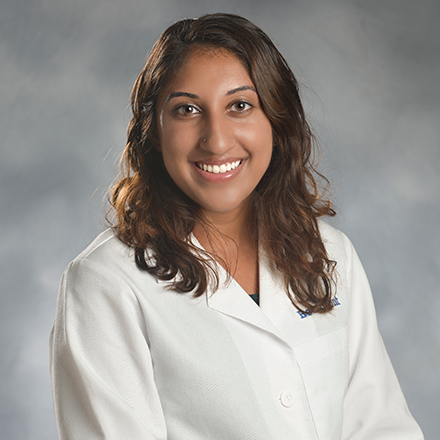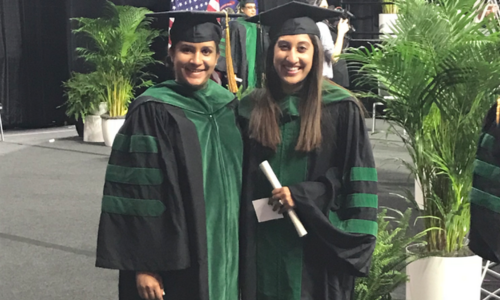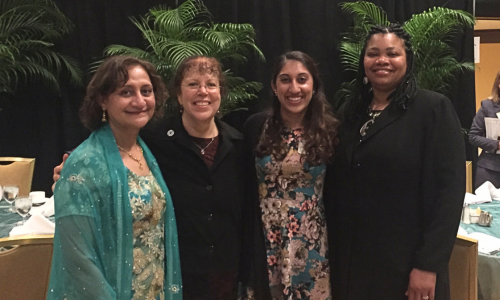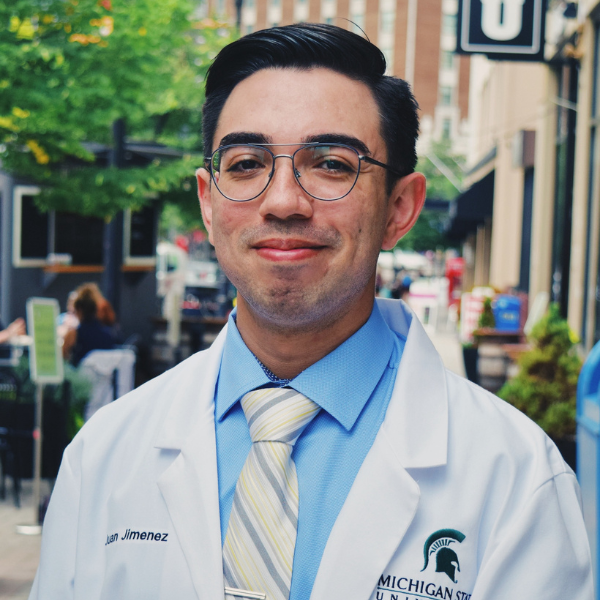Alumna Gurbaksh Esch Named Interim Director of the Leadership in Medicine for the Underserved Program
January 29, 2025
 Michigan State University College of Human Medicine alumna Gurbaksh Esch, MD, MPH, FAAP, has returned to her alma mater as the interim director of the Leadership in Medicine for the Underserved (LMU) program.
Michigan State University College of Human Medicine alumna Gurbaksh Esch, MD, MPH, FAAP, has returned to her alma mater as the interim director of the Leadership in Medicine for the Underserved (LMU) program.
Since 2004, the Leadership in Medicine for the Underserved program has been connecting MSU medical students with vulnerable populations through long-term community engagement, core clerkships at underserved clinics, and international and urban elective options.
Dr. Esch is excited to take the helm of this dynamic program two decades into its community impact. “I truly believe it’s a wonderful program,” she said. “The more I become involved with it, the more I learn and the more I love it. It’s doing these students and their future communities a service.”
The role aligns with Dr. Esch’s dual passions: serving vulnerable populations and teaching. In high school, Esch thought she wanted to be a Spanish teacher until she fell in love with the human body in biology class. She realized that she could combine her love of educating with her already budding desire to serve overlooked and immigrant communities by becoming a physician.  As an MSU College of Human Medicine student, Dr. Esch spent time working with various underserved communities in Flint. She later founded Health Equity Rounds during her pediatric residency at Beaumont in Royal Oak (now Corewell Health East). These quarterly rounds feature case studies that highlight the effects of inequity on patient outcomes.
As an MSU College of Human Medicine student, Dr. Esch spent time working with various underserved communities in Flint. She later founded Health Equity Rounds during her pediatric residency at Beaumont in Royal Oak (now Corewell Health East). These quarterly rounds feature case studies that highlight the effects of inequity on patient outcomes.
After residency, she spent two years as the inaugural Alice Hamilton scholar at the Pediatric Public Health Initiative while completing her master's in public health. This allowed her to dig deeper into learning about social determinants of health and understanding why physicians need to care for the whole patient, not just symptoms and illnesses in isolation.
“There is an underlayer of mistrust with physicians that is understandable,” said Esch. Thanks in part to the rise of the internet and social media, Esch notes that many people are more comfortable searching online for health advice than they are seeking advice from a doctor they might not know very well. “This program bridges that gap by training medical students to be empathetic leaders in community medicine, understanding the community in which they train and in which they practice.”  Dr. Esch’s days are spent doing the things she loves: educating, advocating, and making a difference. As the program director, she gets to lead didactics with students, debrief with them after elective experiences, and serve as a mentor for their career paths. She also works closely with community partners year-round to maintain strong relationships between the program and its patient populations.
Dr. Esch’s days are spent doing the things she loves: educating, advocating, and making a difference. As the program director, she gets to lead didactics with students, debrief with them after elective experiences, and serve as a mentor for their career paths. She also works closely with community partners year-round to maintain strong relationships between the program and its patient populations.
She also still practices as an inpatient and outpatient clinical pediatrician. In this setting she gets to pass along her knowledge to medical residents who aren’t necessarily enrolled in LMU but can still benefit from exposure to a more equitable perspective.
“One of the best things I ever did was go to MSU College of Human Medicine,” said Esch. “MSU teaches its students how to be empathetic physicians who are able to talk to patients on their level and meet them where they’re at, and to train in the communities where they’re going to work and live.”
The Leadership in Medicine for the Underserved program is made up of 60 first- through fourth-year medical students, sending more and more community-minded physicians out into Michigan towns, cities, and neighborhoods to do good work each year. Get involved or donate here.
By Kayla Crum
Related News | Student View![]()
Third-year student Juan Jimenez, part of the Leadership in Medicine for the Underserved program, reflects on his recent elective at Wellness Services in Flint, where he learned about specialty HIV care and syringe service programs, and assisted staff in creating and distributing harm reduction kits for clients.


